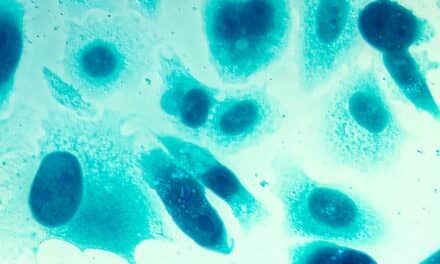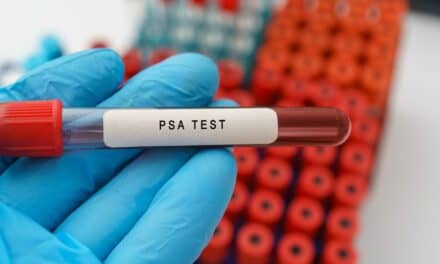The National Comprehensive Cancer Network has updated its medical guidelines for prostate cancer treatment to broadly include biomarker testing.
Changes to the guidelines include new language supporting the use of Prolaris, from Myriad Genetics Inc, Salt Lake City, as standard of care in treatment decisionmaking for patients with low-risk and favorable-intermediate-risk prostate cancer. Additionally, the new guidelines support an expansion of hereditary cancer testing for prostate cancer to include all patients with a family history, regardless of Gleason score, along with all patients with metastatic disease; and new recommendations supporting testing for homologous recombination deficiency (HRD) in patients with metastatic prostate cancer.
“We view this significant update in guidelines as a clear indication of the increasing importance of molecular biomarkers in guiding prostate cancer care, and Myriad is uniquely positioned with its broad portfolio of tests to address these clinical needs,” says Nicole Lambert, general manager of urology at Myriad Genetics. “These new guidelines are critical in our efforts to broaden insurance coverage and increase patient access to Myriad’s entire portfolio of prostate cancer molecular diagnostic tests.”
Myriad’s portfolio of prostate cancer tests includes Prolaris, a 46-gene RNA-expression test that directly measures tumor cell growth characteristics for stratifying the risk of disease progression in patients with prostate cancer. Prolaris provides a quantitative measure of the RNA expression levels of genes involved in the progression of tumor growth.
The Myriad myRisk Hereditary Cancer test uses an extensive number of sophisticated technologies and proprietary algorithms to evaluate 28 clinically significant genes associated with the development of eight hereditary cancers, including breast, colon, endometrial, gastric, ovarian, pancreatic, and prostate cancers, and melanoma.
Myriad’s myChoice HRD is a homologous recombination deficiency test, enabling physicians to identify tumors that have lost the ability to repair double-stranded DNA breaks.
Under the updated NCCN guidelines, Prolaris is now standard of care for 110,000 patients per year identified as low-risk or favorable-intermediate-risk patients. Furthermore, myRisk Hereditary Cancer is now recommended for approximately 70,000 prostate cancer patients per year, including all patients with metastatic prostate cancer and those with a family history of cancer, regardless of Gleason score. Lastly, myChoice HRD is now recommended for 20,000 patients per year with metastatic prostate cancer to identify tumors with homologous recombination deficiency so that these patients can be considered for targeted therapies.
For more information, visit Myriad Genetics.






